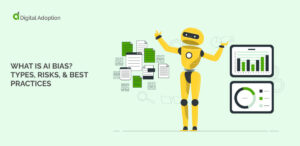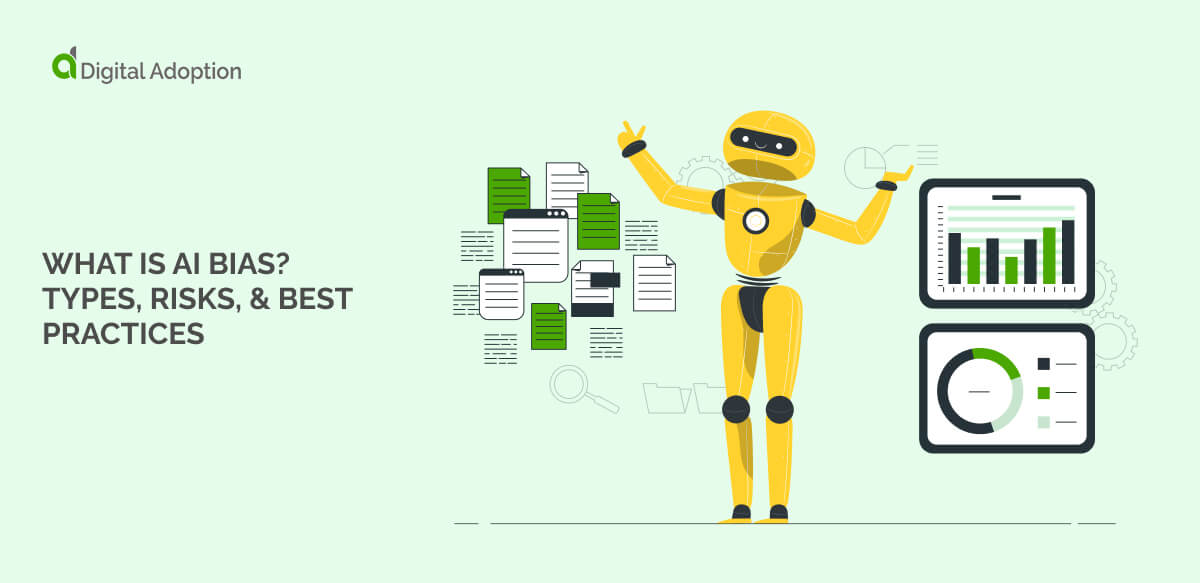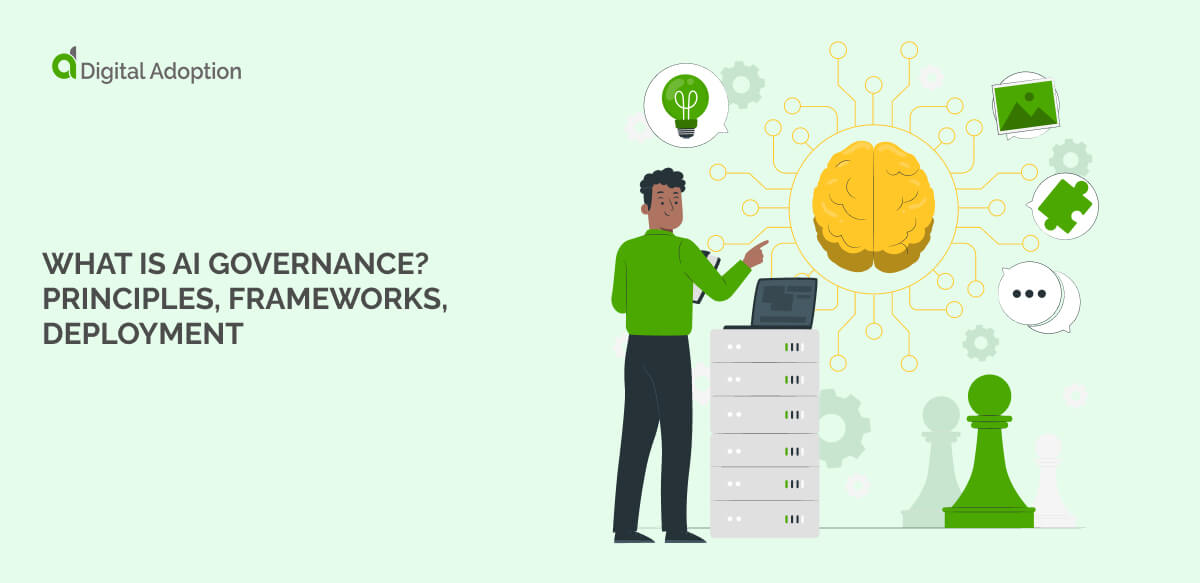Digital adoption vs. technology adoption – what’s the real difference?
Today, these terms are often used interchangeably.
But they aren’t the same.
In this article, we’ll explore both of these terms, how they are different, and why it matters.
Digital Adoption vs. Technology Adoption
While the two terms are similar, they mean slightly different things:
Technology adoption refers to the acceptance, deployment, and implementation of a new technology, in a marketplace, society, or group of people.
The technology adoption life cycle is a model that describes this process.
It breaks technology adoption into stages, defined by the groups who adopt that technology.
Most models split technology adopters into five groups:
- Innovators – Those who innovate and develop new technology
- Early Adopters – Enthusiasts and others who want or need to adopt technology very quickly
- Early Majority – Those who are open to new ideas and innovations, but slightly more conservative than early adopters
- Late Majority – Together with the early majority, this group makes up the bulk of adopters
- Laggards – This group waits very late to adopt new technology, and are the most conservative in terms of technology acceptance
This model predates digital technology. But it is frequently used today to describe the adoption curve of new technologies in the marketplace.
The key point to note about this model is that it describes the natural spread of technology in a marketplace.
However, there is another definition for technology adoption that is relevant here:
Technology adoption can also refer to an organization’s intentional implementation of a technology.
In this case, a business decides to adopt a technology – such as a software platform or new hardware – then integrates that into its business practices.
This definition is the closest to digital adoption, because both are intentional.
However, as we’ll see below, this second definition of technology adoption is somewhat lacking.
Digital adoption means embracing, implementing, and using a technology to its fullest extent and for its intended purpose.
Digital adoption, therefore, is 100% intentional.
An organization must make the decision to adopt a digital technology.
But they must also go a few steps further – they must fully implement the technology and integrate it within their business processes.
- A company that chooses to implement a new software platform, for instance, must do a few things:
- Test and deploy the software in target business areas
- Onboard and train employees
- Maximize usage, engagement, and employee productivity
Digital adoption, in other words, is a process.
To maximize results and ROI, an enterprise must approach digital adoption systematically.
Which Process Should Your Business Follow?
In short, digital adoption is the best process to follow.
Here’s why:
- Digital adoption has measurable, specific criteria – namely, it aims for the full integration and implementation of technology within a business
- Technology adoption does not have measurable criteria
- Tools, techniques, and technologies have been developed to help organizations with their digital adoption processes
- Because digital adoption is goal-oriented, it can be approached systematically and strategically
Developing a digital adoption strategy, therefore, is more practical than a technology adoption strategy.
The simple reason for this is that technology adoption doesn’t have benchmarks or goals.
Specificity such as “using technology to its fullest extent” allows one to create a digital adoption strategy with that end goal in mind.
To achieve that goal, a digital adoption strategy would aim to:
- Onboard quickly and efficiently
- Maximize engagement and learning
- Help employees attain competency and full productivity levels
Each of these sub-goals – such as engagement, competency, and productivity – can be measured.
Measurable targets allow a company to set goals, then measure its progress against benchmarks, KPIs, and metrics.
This is one of the key reasons that digital adoption is more useful and tangible than technology adoption.
However, there are a few other reasons why digital adoption is a better term to use in a business context.
Digital Adoption Is Part of Digital Transformation
Digital transformation can include both digital adoption and technology adoption.
But it also carries with it a set of other connotations.
Organizations undergoing digital transformation also change:
- Their culture
- Work processes
- Business practices, processes, and models
- Customer experience
- How they interact with their audience and their customers
To name a few.
Underpinning the idea of digital transformation is the notion that the world itself is transforming.
In a world that is becoming digital, organizations must digitally transform or get left behind.
Digital adoption, therefore, is a necessary survival trait.
It is an essential building block of digital transformation … perhaps the most essential building block.
Businesses that use digital adoption – instead of technology adoption – can integrate this process with their other digital transformation efforts.
This helps companies develop roadmaps for organizational change in today’s fast-paced digital era.
Conclusion
As we can see, there is a difference between digital adoption and technology adoption.
Though some may view this difference as mere semantics, it should be clear that words matter.
Adding the right criteria to your definition can make big differences when it comes to goal-setting and strategic planning.
And the right adoption strategy can make a world of difference when it comes to bottom-line results.













